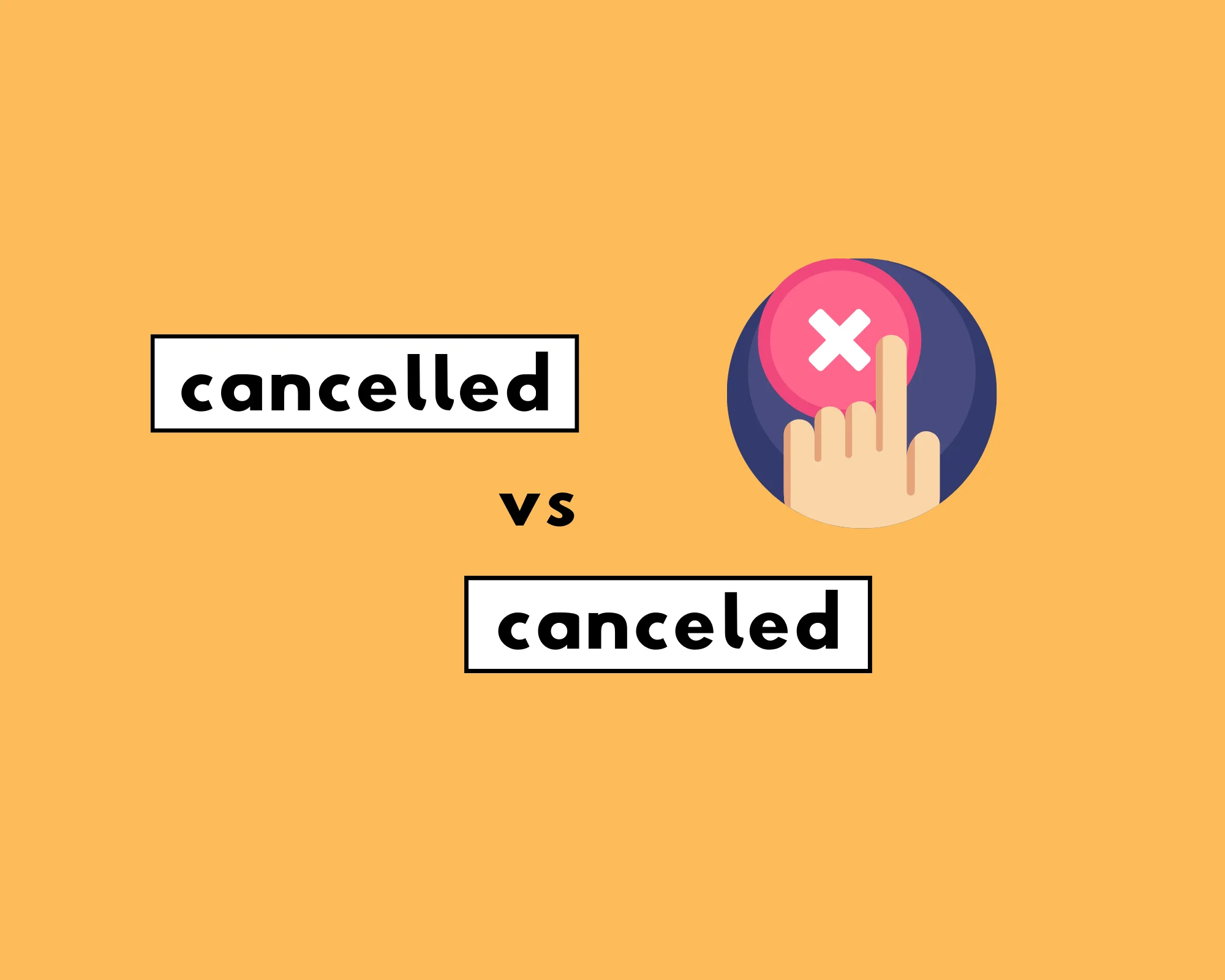Contents
Toggle
Canceled or cancelled?
One of the most pressing fears in our current cultural climate—also known as the fear of being cancelled . . . or is it canceled?
Which spelling is correct: cancelled vs. canceled
- US English spells canceled with one “L”.
- UK English spells cancelled with the double “L”.
What does cancelled/canceled mean?
The verb cancel (usually on something or someone), means to decide that something that had been arranged will now no longer happen or take place. Relatedly, it can also mean to make void, as in a contract or some other obligation.
Why is there American English and British English?
The divergence in spelling, which are shown in the previous section, are mostly the influence of an American man and lexicographer, Noah Webster. If the name sounds familiar, it’s because it’s the Noah Webster of Webster’s dictionary.
The short of it is that Mr. Webster felt it was too tricky for the American kids to learn the spellings of British English, and so, he proposed reforms of words to be spelled in a more straightforward, Americanized way.
His first dictionary was focused on spelling, and was called the Blue Back Speller. That’s it—that’s the story behind the differences in American and Brit English spelling.
Examples of cancelled/canceled in the media
“Likewise, his poll taxes are cancelled and annulled for the three years next preceding if he has an honorable discharge.” (from WashingtonBlade article by Khelil Bouarrouj)
“In spite of everything, he felt him present, an offence to his personal dignity, that visitor whose invitation had been cancelled.” (Hallowed Heritage: The Life of Virginia, Dorothy M. Torpey)
“However, Rose’s appointment was not in any great danger of being cancelled.” (A Houseful of Girls, Sarah Tytler).
“They issued their own decrees without his authority, and sometimes cancelled his orders without consulting him.” (Belgium, George T.W. Omand)
“Merchants combined to stop all importation from England, cancelled their orders and delayed sending remittances.” (The Political History of England, William Hunt)
“‘After I have cancelled my indebtedness to you,’ she said, serenely.”
Examples of canceled used in sentences
- “In the end they canceled all London engagements and quietly set out for Scotland.” (Mark Twain: A Biography, Albert Bigelow Paine, 2006)
- “I canceled Ange’s dinner at our place and started spending even more time there.” (Little Brother, Cory Doctorow)
- “He took the canceled paper, nodded coldly to the Jew, and left the money-lender’s office with his companions.” Friendship’s Guise, W.M. Murray Graydon)
- “Her complications had been canceled like vulgar fractions, and she was left in a state of the most deplorable simplicity.” (Dodo’s Daughter, E.F. Benson)
- “Some big act is canceled owing to illness and they have to have a sketch.” (Jane Journeys On, Ruth Comfort Mitchell)
- “Your lease is by the term—a term being three months—and can be canceled upon giving one term’s notice.” (Paris Vistas, Helen Davenport Gibbons.)
- “The event was canceled at the last minute when the speaker didn’t show up.” (Merriam-Webster)
- “The agreement can be canceled by either side with a formal written notice.” (Merriam-Webster)
Cancelled, synonyms
- to put an end to
- discontinue
- halt
- interrupt
- disrupt
- break off
- terminate
- stop
- abandon
- abort
- call of
- drop
- repeal
- rescind
- revoke
Antonyms of canceled
- continue
- keep
- start
- commence
- begin
- initiate
- start
- take on
- undertake
- take-up
Forms of cancel
- Base verb, to cancel.
- Past tense and past participle: canceled, or cancelled.
- Present participle/gerund form, cancelling or canceling (same rule applies here as with the past tense form regarding British vs. American spelling.)
Read about other misused words
Sources
- Bouarrouj, K. (2021, February 21). Anti-BDS laws an affront to free speech. WashingtonBlade. https://www.washingtonblade.com/2021/02/19/anti-bds-laws-an-affront-to-free-speech/
- Mark Twain: A Biography, by Albert Bigelow Paine, 2006
- Jane Journeys On, Ruth Comfort Mitchell
- Paris Vistas, Helen Davenport Gibbons
- Belgium by George T.W. Omand
- A Houseful of Girls by Sarah Tytler
- Canadian, British, and American
- “Noah Webster normalized many American spellings” Mark Abadi
- The Diamond Coterie by Lawrence L. Lynch










